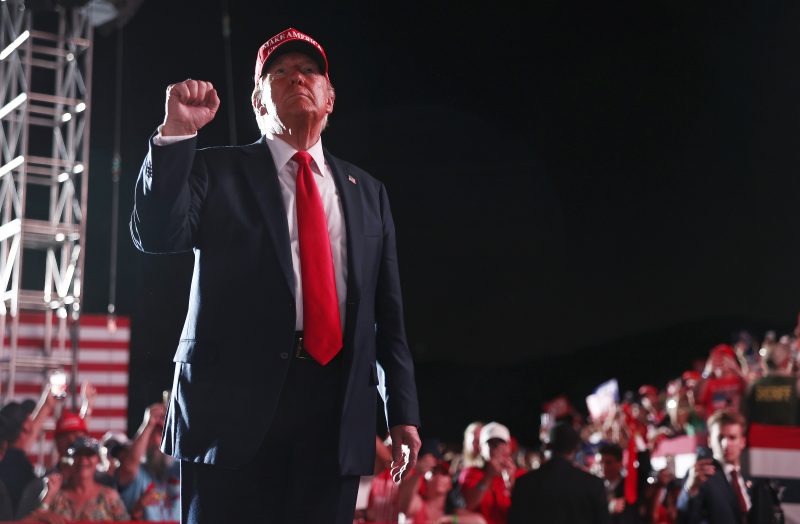In a recent rally, former President Donald Trump made controversial comments suggesting violence against a heckler. The incident occurred during a speech in North Carolina, where a protester disrupted the event by shouting and holding up a sign. Trump’s response, captured on video and widely shared on social media, sparked a wave of debate and criticism.
The video shows Trump pointing to the protester and saying, Get her out of here. Get her out. Knock the crap out of her, would you? Seriously. Get her out of here. His words were met with cheers and applause from some supporters in the audience, while others expressed shock and disapproval.
The incident reignited concerns about the use of violent language in political discourse and the potential consequences of such rhetoric. Critics pointed out that Trump’s words could incite violence and create a dangerous atmosphere at his rallies. In the past, similar comments have been linked to physical altercations and clashes between supporters and protesters.
In response to the backlash, Trump’s team downplayed the remarks, arguing that they were taken out of context and meant in a joking manner. However, many viewed the comments as reckless and irresponsible, especially considering Trump’s influence and the impact of his words on his supporters.
The incident also raised broader questions about the state of political discourse in the United States and the role of leaders in shaping public attitudes. Calls for civility and respect have become increasingly urgent in a polarized and divisive climate, where inflammatory language and aggressive tactics are often used to silence dissent and intimidate opponents.
Ultimately, Trump’s suggestion that a heckler should be knocked out reflects a troubling trend in modern politics, where violence is sometimes normalized and even condoned. As citizens and leaders, we must strive to uphold principles of respect, tolerance, and peaceful dialogue, even in the face of disagreement and conflict. Only by fostering a culture of civility and understanding can we hope to bridge divides and build a more united and inclusive society.
